Home » Blog » IP Leasing
Top 7 Benefits of IP Address Leasing for IP Lessees
Why do more and more companies choose to lease IPv4 resources instead of buying them? There are several significant benefits that these companies have discovered.
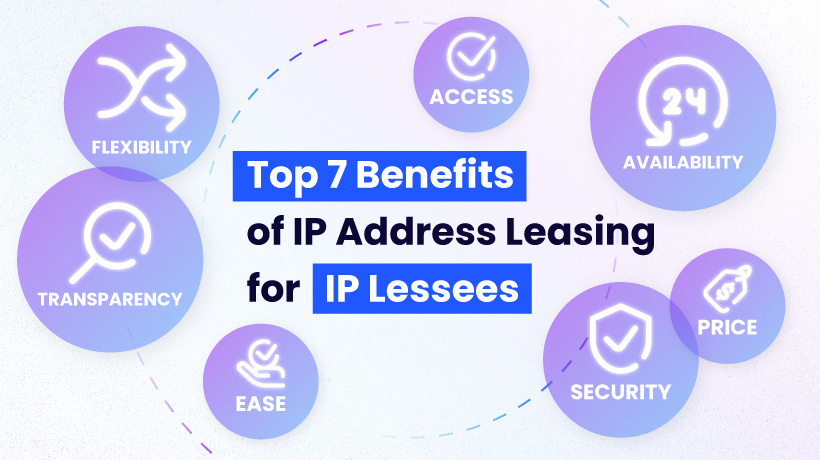
In the world wide web, the Internet Protocol address version 4 (IPv4) shortage is a significant challenge, depriving many businesses of growth opportunities. Since it will take time to adopt IPv6, the demand for the scarce IPv4 resources has been only increasing, together with the prices. Fortunately, the tremendous benefits of IP address leasing enable businesses to overcome the shortage and access IPv4 resources they need to grow and expand.
With IP address prices rising, IP holders choose to monetize their unused and available resources due to guaranteed recurring income. Leasing address space creates an opportunity to monetize IP addresses that are not in use and then, if need be, sell them at a higher price in the future.
But what are the benefits for the IP lessee – the one receiving the IP address block? Actually, there are many reasons for companies to lease IPs. Due to numerous advantages that leasing creates, it has become one of the most appealing solutions to IPv4 scarcity, allowing many businesses to scale and save costs.
Let’s analyze in detail the seven main benefits of leasing IPv4 addresses via the IPXO Marketplace for IP lessees.
1. Competitive IP block pricing
The IPv4 address pool was officially depleted in 2011 when the Internet Assigned Numbers Authority (IANA) distributed the last free IP block. Although IPv4 resources dwindled, the demand continued to climb, and this led to price increases. With IPv4 address prices rising from around $5 per IP address in 2011 to an average of $50 in 2022, the shift is significant.
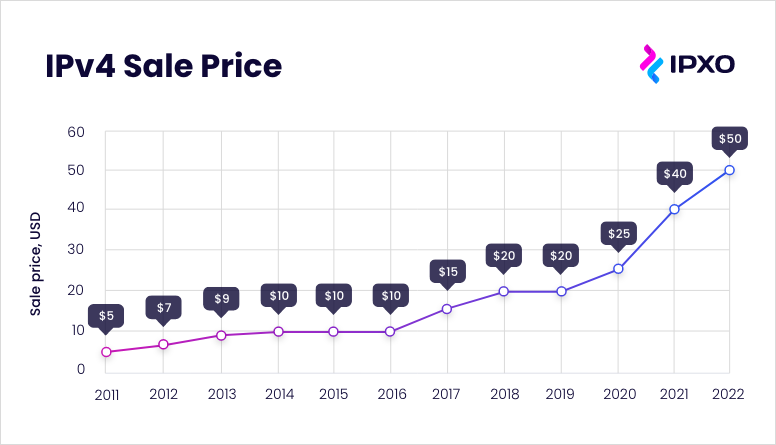
Although the average lease price per a single IPv4 address was around $0.50 in 2022, prices varied depending on the Regional Internet Registry (RIR). For example, the average was $0.51 per IP per month for RIPE NCC resources and $0.69 for LACNIC.
In short, leasing the IPv4 space is around 10 times cheaper than buying addresses. At current rates, it takes around seven years of leasing to reach the cost of buying. Undeniably, the cost-effectiveness of leasing IP addresses allows a lessee to save a significant amount of capex for a company in any industry.
Discover average IPv4 deal prices at IPXO
Up-to-date lease information and statistics
The IPv4 address price depends on the supply and demand, which creates a self-regulating and liberal market. Due to the high number of companies looking to monetize used IP resources, the IPXO Marketplace can offer more than 3 million IPv4 addresses. IP lessees can choose subnets of different sizes from all RIRs and various geolocations, for a desired amount of time.
2. Flexible commitments
When leasing the IPv4 address space, flexible commitments enable lessees to adjust the lease length and conditions of the lease agreement according to their business needs. This can benefit organizations that have varying or uncertain IPv4 address requirements. That is because leasing IPv4 addresses is more flexible than buying them.
By leasing IPv4, businesses can pay for the IP address blocks they need. And for the amount of time they require. The ability to customize the lease term length and pricing also provides organizations with greater control and predictability over their IPv4 address expenses.
It is free to register an account at IPXO. And when you sign up, you are not obligated to make any short or long-term commitments. The length of the leasing agreement depends on the company’s needs entirely. It can vary from just several months to years.
Long-term and short-term lease
If there are business projects for which temporary IP addresses are needed, companies can lease IPv4 for as short as a month. A shorter term length is usually relevant for e-commerce, proxies or network-infrastructure-focused industries. Why? They may need to reach a particular result quickly and cost-efficiently.
Short-term IPv4 lease can also benefit any company in the process of migrating to IPv6. Leasing creates opportunity to acquire temporary IP addresses, and they do not need to spend extra capital to gain IPv4 resources that the company will have to deal with selling afterward.
On the other hand, if a lessee needs IP blocks for longer than a month or two, a long-term leasing agreement with negotiated commitments is available. Long-term leasing agreements are particularly beneficial for large businesses. Including hosting and infrastructure providers, internet service providers, telecoms, cybersecurity and business intelligence companies.
Custom lease terms
Every lessee interested in a long-term lease has the opportunity to sign a custom leasing agreement. It can significantly cut down the monthly price. Because companies with unused IPs are interested in long-term lease, they often can offer better lease conditions to lessees who lease IPv4 addresses for an extended period. Of course, the subnet size also affects the lease agreement terms. The more addresses you lease – the lower the price per a single IP address block.
Even though the IPXO Marketplace offers flexible commitments, not all IPv4 providers do. It is important to consider all these things when choosing an IPv4 provider. Also, make sure to always review the terms of the lease agreement and take the option to negotiate your lease terms with the IP holders if that is available.
3. Instant availability of IP addresses
Do you want to waste time on a lengthy procurement process of the IP address space? We are sure that is not the case, and you would much prefer immediate access to IP resources to support the growth and expansion of your business. Fortunately, IP leasing creates an opportunity to lease and provision almost instantly.
Instant access and provisioning
One of the key advantages of leasing IPv4 addresses is instant availability. Unlike with traditional IP address block acquisition, which can be a lengthy and complex process, leasing address space allows organizations to gain immediate access to the resources they need.
Resource Public Key Infrastructure (RPKI) management plays a significant role here. The system uses digital certificates and a hierarchy of trust to quickly ensure that only authorized parties can advertise a specific IP address prefix on the internet.
No complicated transfer procedures
With the instant availability of IPv4 addresses, organizations can avoid delays and disruptions in their operations. A well as ensure that the network is always running at optimal capacity.
There is no need to familiarize oneself with the policies of various RIRs as RPKI provides a unified, standardized system for managing IPv4 addresses. Today, more than 1M IP addresses are already delegated to IPXO for full RPKI management, indicating that many businesses have already discovered this benefit. After all, RPKI management makes the process of acquiring and using IP space more efficient and less time-consuming.
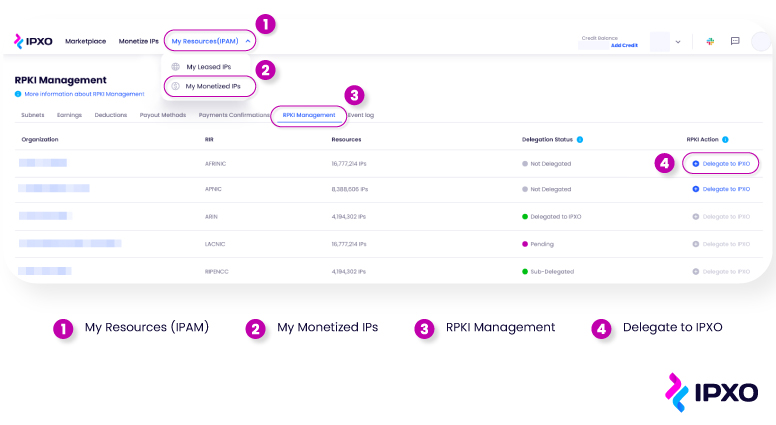
Moreover, if a lessee was to join a waiting list of LACNIC, RIPE NCC or ARIN, they may wait for an unused block for months or even years. Whereas IPXO empowers IP lessees to start leasing within 5 minutes and provision IP addresses to any infrastructure within 24 hours.
4. Rich subnet availability
Rich subnet availability is another significant benefit of IP leasing. It allows organizations to expand their network capabilities, improve network security, simplify network management and reduce IP address conflicts.
Compared to competitors, IPXO can always offer IPv4 addresses from all five RIRs and subnets of various sizes (/24-/16), which enables businesses to choose the subnet size that meets their needs best.
Furthermore, the variety of geolocation options available for IPXO clients, enables enterprises to control their IP addressing needs and make sure that they have the right IP addresses for the specific use cases.
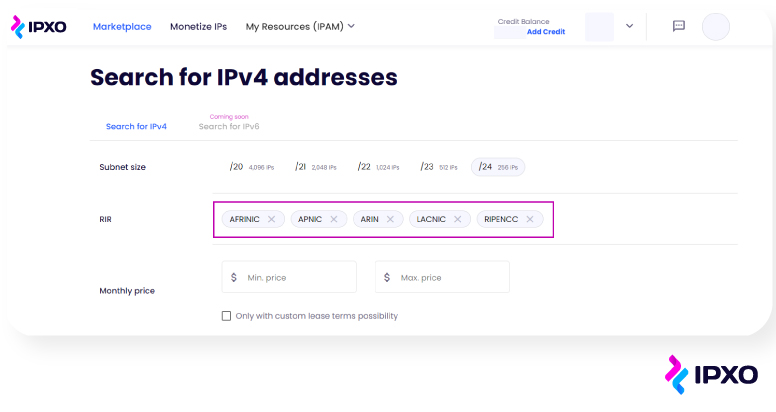
5. Transparent subnet validation
Thorough subnet validation allows improving network security, ensuring compliance, reducing network downtime, enhancing network performance and simplifying network management by providing accurate and up-to-date IP address information.
Every IP holder who joins the IPXO Marketplace must pass subnet validation checks. Only if subnets are validated can they be put up for lease. This is how we ensure that only clean and reputable subnets, which are verified and validated, are made available for IP lessees. This means that the IP lessee does not need to expend its own resources to find and validate clean IP addresses.
6. Professional IP address abuse management
IP address abuse management is the process of identifying, mitigating and preventing the misuse of IPv4 addresses. Including spamming, hacking and other forms of illegal activities. Therefore, professional IP address abuse management is essential for many companies that need to protect their networks and reputation from abuse.
Effective IP address abuse management enables companies to reduce expenses on IP administration. That’s because it ensures that organizations do not need to hire or train specialists to deal with malicious behavior. This is especially important to consider for companies that wish to buy IP addresses and become IP block holders.
At IPXO, automated real-time IP address monitoring empowers our Abuse Prevention team to track blocklisted IP addresses. As well as solve the incidents that threaten IP reputation quickly. To prevent a disreputable IP block from entering the Marketplace, we also perform thorough subnet validation checks. In short, we simultaneously deal with potentially unreliable IP holders and every potentially malicious or inattentive lessee.
7. Easy registration
All companies interested in leasing IP addresses via the IPXO Marketplace are subjected to thorough KYC (Know Your Customer) checks. This allows us to protect the IP address pool from potentially unreliable parties. And it helps us to get a head start on predicting IP reputation problems beforehand.
The KYC process at the IPXO Marketplace is quick and painless. We aim to ensure that businesses do not waste time with lengthy and complex processes to lease IPv4 addresses. Instead, we have introduced a user-friendly registration process. It empowers companies to sign up and start leasing address space as soon as possible.
Risks of IPv4 lease
While IPv4 address leasing offers significant advantages, some people are still wary of the risks that could be associated with the process. Here are some of the greatest concerns companies have.
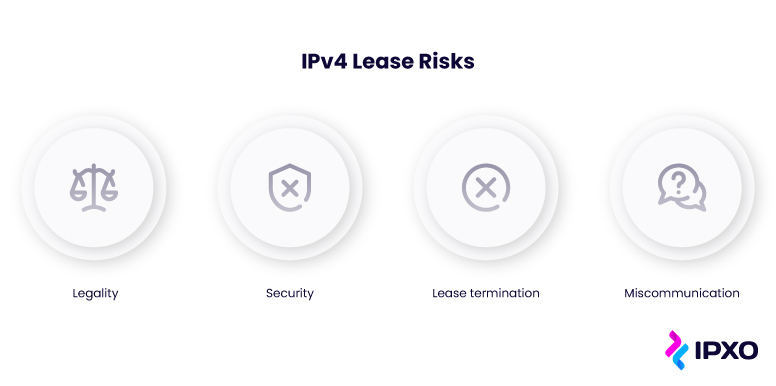
Legal risks
Companies often assume that IP address leasing agreements are complex and may involve legal issues. Including those relating to ownership, liability and compliance with regulations. However, things are a lot more straightforward, and IPXO assumes the role of a mediator to help both IP lessees and IP holders. Companies can also employ legal counsel to help review the terms of any lease agreement.
Security risks
Some companies hesitate to lease IPv4 addresses because they fear paying for resources that have been previously compromised or used for malicious activities. At IPXO, we eliminate this risk before subnets are even placed for lease during subnet validation checks. This means that IPs associated with malicious behavior are not put up for lease.
Lease termination risks
Companies that wish to lease IPv4 are often fearful of the possibility that the holder of IPs can take away the resources at any time. The IPXO Marketplace has introduced a safeguard to ensure this does not happen. Even if an IP lessee chooses not to sign a committed agreement. Although an IP holder can terminate the lease, they are legally obligated to inform about the lease termination 90 days in advance.
Communication risks
Even though any company can lease IPv4 addresses to expand its business, communication problems with companies monetizing IP addresses may arise. Especially if a user journey on a website is not clear. In such cases, a dedicated support specialist becomes a lifesaver.
#1 IPv4 lease benefit: Flexibility
IPv4 leasing offers a variety of advantages for organizations that need additional IP resources. Among them, reduced costs, flexible commitments, rich subnet availability, instant access, thorough subnet validation, professional IP address abuse management and quick and easy access to all services.
To sum up, the greatest benefit of IP address leasing is flexibility. IP leasing empowers organizations to scale their networks quickly and easily. Without the need to dedicate time on expensive and lengthy IP address acquisition. IP leasing also enables companies to respond to changes in their network requirements. Including periods of rapid growth or expansion. This helps prevent delays or disruptions to their operations.
The benefits of IPv4 address leasing encourage companies to lease instead of buy IPv4 resources. Simultaneously, this contributes to the overall flexibility, scalability and sustainability of the entire internet.
Your #1 IP lease platform
Fully automated. Fully accessible. Fully supported.
FAQ about IP lease benefits
IP address block leasing is around 10 times cheaper than buying. In fact, it takes around seven years for the lease price to go over the purchase price. Therefore, IPv4 leasing is a more cost-effective option than acquiring new IPv4 addresses, especially for organizations that only require a small number of addresses or have a temporary need for additional IPv4 resources.
If the IP lease/rent provider can offer IPs from all five Regional Internet Registries as well as ensure rich availability of geolocations, companies can expand their global reach and improve their ability to connect with customers and partners around the world.
Whether a company has a single unused block of IPs or many of them, they can either do nothing with them or monetize them by selling or leasing them. Leasing IPv4 is more advantageous to companies with unused IPs than selling due to several benefits. First, companies can secure extra capital when they monetize IP addresses. Second, they do not need to pay for the services of an IP broker to find a potential buyer or dedicate time to finding one themselves. At the end of the day, at this time, it is more beneficial to lease IPv4 first, secure extra capital, and then sell at a higher price, considering that IP prices continue to climb.
Regardless of the lease term length, when the lease/rent agreement expires, the IPv4 holder may choose to renew the agreement, reassign the IP address to another customer or discontinue the service altogether. On the flip side, the IP lessee needs to renew the contract to continue using the leased addresses. This might involve renegotiating terms and paying a lower or higher price.
The lease time can be set to any length of time; however, the IPv4 lease term usually varies between a month and several years, depending on how the IP holder intends to monetize their unused block or several blocks. This is why IP lease is beneficial for those needing temporary IP addresses.
Despite IPv4 address prices rising, some companies choose to purchase IPv4 addresses due to two main reasons.
- Network expansion: When a company expands its infrastructure, it may need to acquire additional IPv4 addresses to accommodate the growth of the network.
- IPv4 scarcity: Since the number of devices and services connected to the internet is increasing, more and more IP addresses are in need to support the customers.
The average price for leasing a single IPv4 address in 2022 was around $0.50, but the price varied depending on the Regional Internet Registry. The most recent average IPv4 deal price can be found on the IPXO Statistics page.
About the author
Table of contents
1. Competitive IP block pricing
2. Flexible commitments
Long-term and short-term lease
Custom lease terms
3. Instant availability of IP addresses
Instant access and provisioning
No complicated transfer procedures
4. Rich subnet availability
5. Transparent subnet validation
6. Professional IP address abuse management
7. Easy registration
Risks of IPv4 lease
Legal risks
Security risks
Lease termination risks
Communication risks
#1 IPv4 lease benefit: Flexibility
FAQ about IP lease benefits
Related reading

Top 10 Benefits of Leasing IP Addresses for IP Holders
Explore the top 10 benefits of leasing IP addresses with IPXO. Maximize income, protect your IP resources, and gain full control.
Read more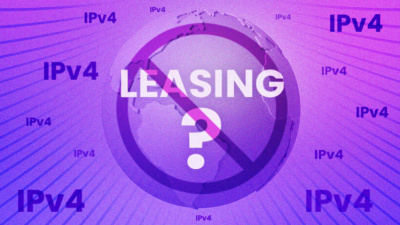
Opinion: IP Leasing Should Become a Market Standard
Learn why IPv4 leasing should become a market standard, which would bring many benefits in a more competitive environment, leading to additional revenue for all parties involved.
Read more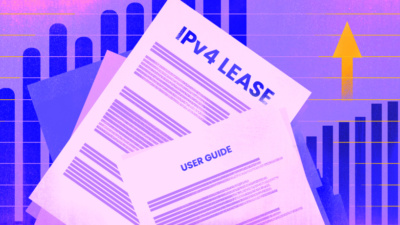
The Ultimate Guide to IPv4 Lease for IP Lessees
IPv4 lease enables companies to scale networks without purchasing expensive IPs and spending additional resources on IP management and IP reputation monitoring. Discover how to lease IPs with ease…
Read moreSubscribe to the IPXO email and don’t miss any news!
